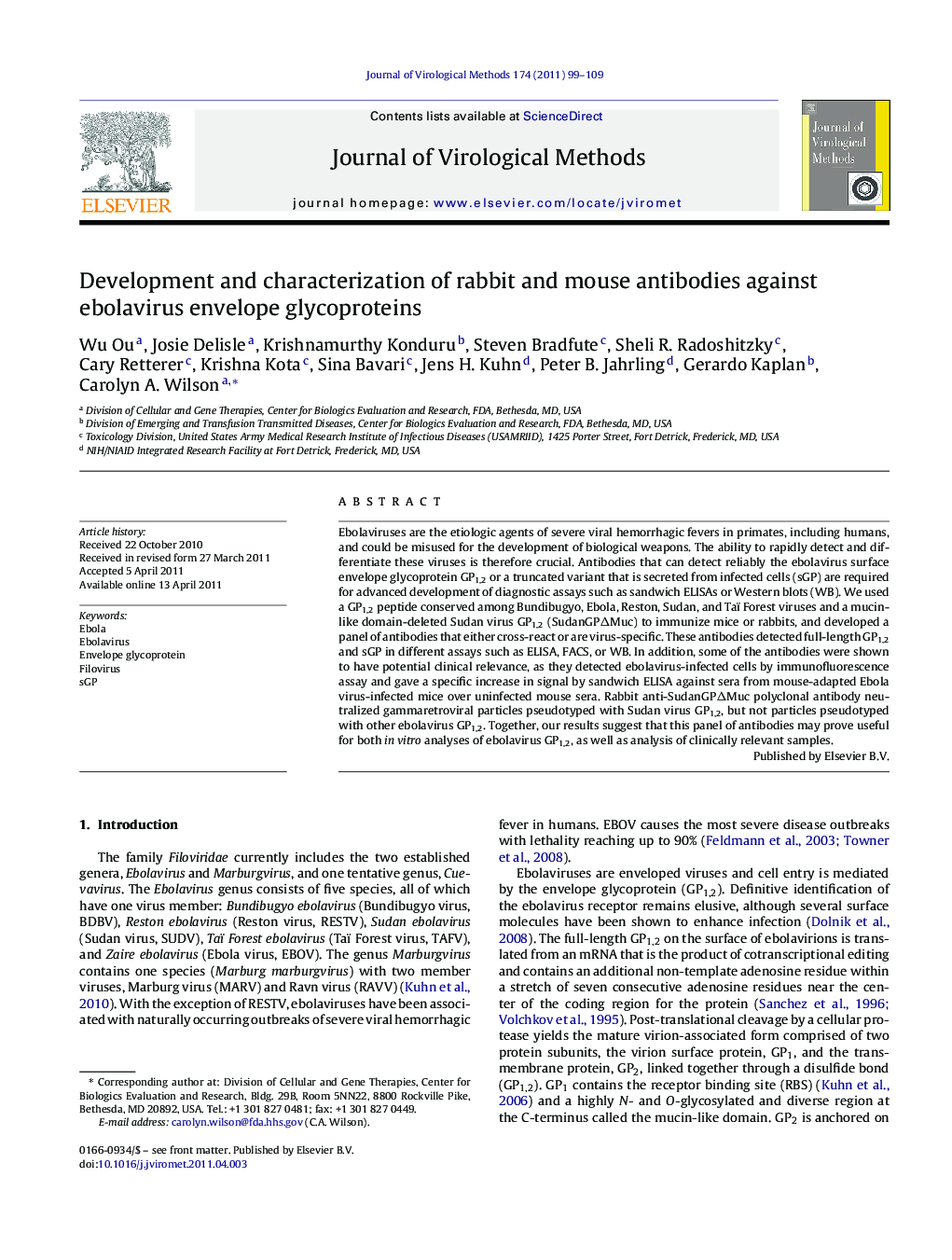| Article ID | Journal | Published Year | Pages | File Type |
|---|---|---|---|---|
| 6135325 | Journal of Virological Methods | 2011 | 11 Pages |
Abstract
Ebolaviruses are the etiologic agents of severe viral hemorrhagic fevers in primates, including humans, and could be misused for the development of biological weapons. The ability to rapidly detect and differentiate these viruses is therefore crucial. Antibodies that can detect reliably the ebolavirus surface envelope glycoprotein GP1,2 or a truncated variant that is secreted from infected cells (sGP) are required for advanced development of diagnostic assays such as sandwich ELISAs or Western blots (WB). We used a GP1,2 peptide conserved among Bundibugyo, Ebola, Reston, Sudan, and Taï Forest viruses and a mucin-like domain-deleted Sudan virus GP1,2 (SudanGPÎMuc) to immunize mice or rabbits, and developed a panel of antibodies that either cross-react or are virus-specific. These antibodies detected full-length GP1,2 and sGP in different assays such as ELISA, FACS, or WB. In addition, some of the antibodies were shown to have potential clinical relevance, as they detected ebolavirus-infected cells by immunofluorescence assay and gave a specific increase in signal by sandwich ELISA against sera from mouse-adapted Ebola virus-infected mice over uninfected mouse sera. Rabbit anti-SudanGPÎMuc polyclonal antibody neutralized gammaretroviral particles pseudotyped with Sudan virus GP1,2, but not particles pseudotyped with other ebolavirus GP1,2. Together, our results suggest that this panel of antibodies may prove useful for both in vitro analyses of ebolavirus GP1,2, as well as analysis of clinically relevant samples.
Related Topics
Life Sciences
Immunology and Microbiology
Virology
Authors
Wu Ou, Josie Delisle, Krishnamurthy Konduru, Steven Bradfute, Sheli R. Radoshitzky, Cary Retterer, Krishna Kota, Sina Bavari, Jens H. Kuhn, Peter B. Jahrling, Gerardo Kaplan, Carolyn A. Wilson,
